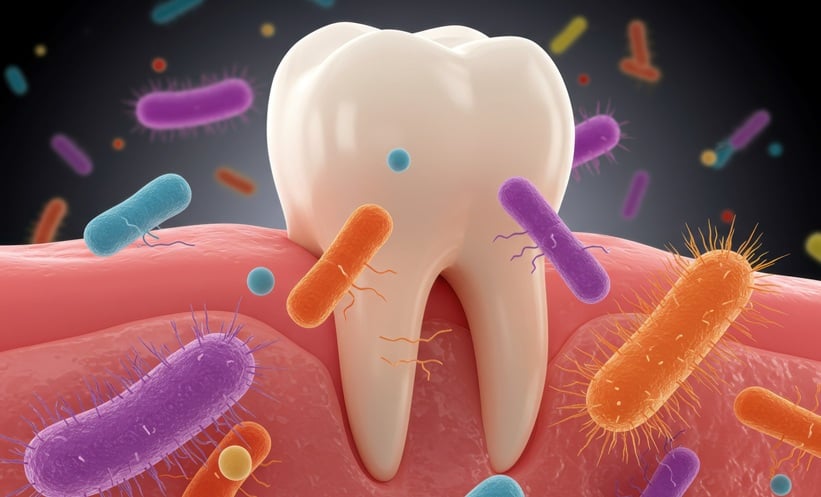Oral Microbiome Imbalance Observed in Multiple Sclerosis
While gut microbiome disruption has been widely implicated in the pathobiology of multiple sclerosis (MS), researchers are now turning their attention to the mouth. A new study using shotgun metagenomics and untargeted metabolomics reveals that people with relapsing-remitting MS (pwRRMS) have a distinctly altered oral microbiome and salivary metabolome compared to healthy individuals.
The analysis identified a notable depletion of Streptococcus and Actinomyces species, early colonizing bacteria that play key roles in establishing and maintaining a healthy oral ecosystem. In contrast, bacteria with higher pathogenic potential, including Fusobacterium nucleatum, Porphyromonas gingivalis, and several Prevotella species, were enriched in the MS group. These Gram-negative bacteria produce lipopolysaccharides (LPS), molecules known to trigger inflammation and immune activation. Their increased presence suggests that oral dysbiosis in RRMS may contribute to the chronic inflammatory processes that underlie neurodegeneration.
Metabolomic Clues Suggest a Link Between Oral Health and Neuroinflammation
In addition to microbial shifts, the study found significant metabolic alterations in saliva, particularly a decrease in hypotaurine, an antioxidant intermediate in taurine biosynthesis that supports myelin maintenance and neuronal protection. Reduced hypotaurine levels, along with downregulation of the cysteine synthesis pathway, may represent a mechanistic link between oral inflammation and central nervous system pathology in MS.
Healthy controls exhibited more robust microbiome–metabolome correlations, including positive associations between Actinomyces naeslundii and taurine, reinforcing the concept of a balanced, neuroprotective oral ecosystem. Conversely, pwRRMS samples showed far fewer correlations, suggesting a breakdown in microbial–metabolic homeostasis.
While the researchers note limitations such as the absence of periodontal data and the need for larger, more diverse cohorts, their findings highlight the potential of salivary hypotaurine as a noninvasive biomarker for RRMS. The study underscores the importance of investigating oral microbial health as part of a broader understanding of neuroimmune regulation and MS progression.
Reference
Fitzjerrells RL et al. Multiple sclerosis patients exhibit oral dysbiosis with decreased early colonizers and lower hypotaurine level. NPJ Biofilms Microbiomes. 2025;11(1):199.








